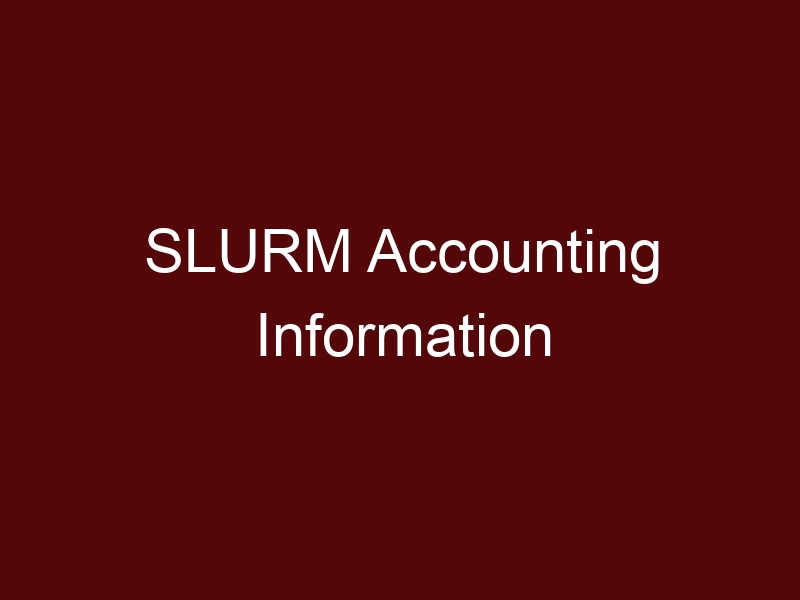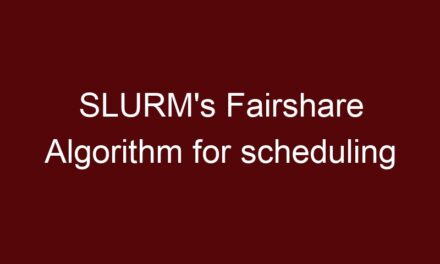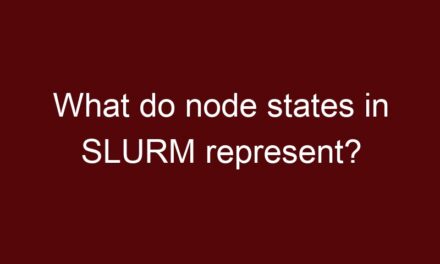In SLURM (Simple Linux Utility for Resource Management), accounting information refers to the records and data collected about the resource usage, job history, and other relevant metrics of jobs that are executed on a high-performance computing (HPC) cluster. This accounting data is used for various purposes, including billing, resource allocation analysis, job performance evaluation, and user activity tracking.
Accounting information in SLURM includes details about each job’s resource consumption, execution time, user and group affiliations, partition usage, and more. This data is stored in accounting logs and databases and can be used by administrators and users to gain insights into cluster usage and job behavior. Here are some key aspects of accounting information in SLURM:
- Usage Metrics: SLURM records information about the resources consumed by each job, such as CPU usage, memory consumption, GPU usage, and I/O operations. This data helps cluster administrators track the resource utilization patterns of different users, groups, and jobs.
- Job History: SLURM maintains a historical record of jobs that have been submitted to the cluster. This history includes information about when jobs were submitted, started, completed, or terminated, as well as the outcome of each job.
- User and Group Information: Accounting information tracks which users and groups submit jobs, helping administrators understand who is using the cluster’s resources and in what capacity.
- Partition Usage: The logs record which partitions on the cluster are being utilized by different jobs. This information can help optimize the allocation of resources among various partitions.
- Fairshare and Priority: SLURM’s fairshare mechanism, which allocates resources based on historical usage, relies on accounting information to calculate users’ fairshare values and determine job priorities.
- Billing and Allocation: Many organizations use the accounting data for billing purposes, especially in shared environments where different groups or projects are charged based on their resource consumption. The data can also inform decisions about allocating resources in a fair and cost-effective manner.
- Reports and Analysis: SLURM provides tools to generate reports and analyze accounting data. Administrators and users can use these tools to gain insights into cluster usage patterns, identify resource bottlenecks, and optimize job scheduling.
Overall, accounting information plays a vital role in cluster management by providing transparency into resource usage, helping allocate resources efficiently, and enabling informed decision-making by both administrators and users.





